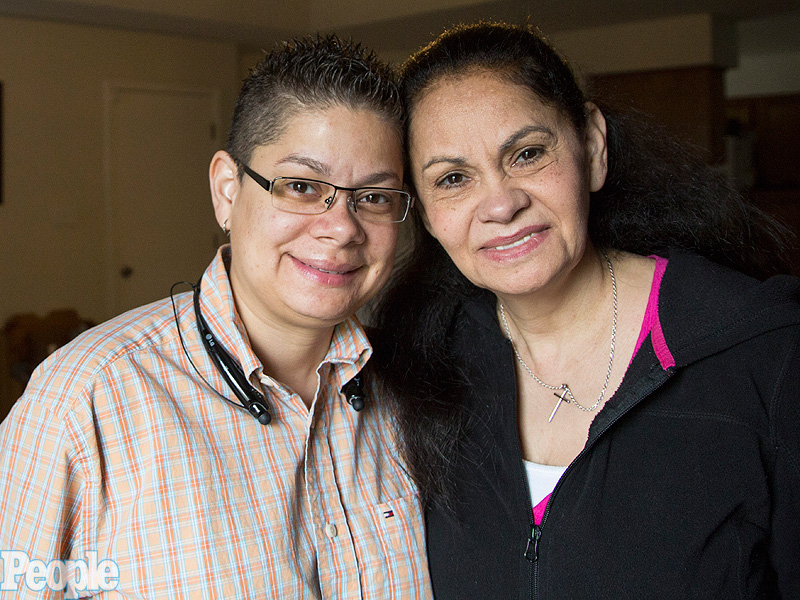Prior to catching the wonderful and emotionally raw film, Still Alice, I stumbled upon a recent physical copy of a People article about a real-life woman named Daisy Duarte, who has been taking care of her early-onset familial Alzheimer’s-stricken mom, Sonia Cardona, for almost four years, and her personal decision to get tested.
For the 39 year-old, her decision stems from the wealth of information she gathered when the whole family learned that her now 59 year-old mom “tested positive for one of the three genes that causes early-onset familial Alzheimer’s.” When “one of her mom’s sisters came from Puerto Rico” in 2013 to give Duarte’s mom’s neurologist the family history, Duarte was shocked to learn, and explained to People, that “we knew it was bad in our family, but we didn’t know it was that bad. It was like, ‘Okay. It’s the luck of the draw. Some have it, some don’t.’ But as my aunt kept talking, I’m like, ‘Oh my God! Everybody’s died from Alzheimer’s on my mother’s side.’” In reality, Duarte told People that currently “seventy-five percent from my mom’s side have it.”
The genetic testing option parallels with a significant scene in Still Alice where the protagonist, Alice, tells her three children, upon her diagnosis, that they have the option to get tested to find out if they will eventually get the same disease.
This major revelation prompted Duarte “to enroll in the Dominantly Inherited Alzheimer Network, an observational study spearheaded by the Washington University School of Medicine, and get tested to find out if she carries one of the genes herself.” The genetic testing option parallels with a significant scene in Still Alice where the protagonist, Alice, tells her three children, upon her diagnosis, that they have the option to get tested to find out if they will eventually get the same disease. I won’t reveal what happens in the movie, but the decision to get tested is deeply personal. Out of Cardona’s three children, Daisy is the only one who decided to go forth with the testing for this rare form of Alzheimer’s.
As an extremely devoted daughter and caregiver, Duarte’s main concern for the outcome of the test results has to do with her mom “should she have the disease and become symptomatic while her mother is still alive.” As she explains, “I promised her – ‘You will never go in a home.’ To me, this is what I live for. She’s my world. The only time I get really emotional is to think of anything happening to my mom.”
Although the online copy of the article doesn’t disclose the results unless you subscribe to People Premium, I read in the magazine that unfortunately Daisy got the very news she was dreading — she was positive for the gene. The only mystery remaining in Daisy’s future will be how soon the onset of this devastating disease will occur and if her mother will still be alive when that happens.
The other part of me thinks that I would not be able to fully savor the remainder of my life if I had the knowledge that I was positive weighing down on me.
After reading Duarte’s story and seeing Still Alice, I would personally be torn about undergoing genetic testing if I found out a loved one had early-onset familial Alzheimer’s disease. Part of me would want to know so I could prepare for my future. The other part of me thinks that I would not be able to fully savor the remainder of my life if I had the knowledge that I was positive weighing down on me. Therefore, I admire Daisy and the fictional Alice, and everyone else dealing with situations like this, for their bravery and courage in handling these difficult diagnoses and challenges in life.

 Would You Undergo Genetic Testing for Early-Onset Familial Alzheimer’s When There’s a Good Chance You’ll Test Positive?
Would You Undergo Genetic Testing for Early-Onset Familial Alzheimer’s When There’s a Good Chance You’ll Test Positive?




 Funeral Favors Offer Visitors a Tangible Memento
Funeral Favors Offer Visitors a Tangible Memento
 “Comeback” by Prince
“Comeback” by Prince















